Not a site endorsement; this is the view of the undersigned RedState Contributors.

If this website has a purpose – if any conservative website or publication has a purpose – it must begin with electing conservatives to significant public offices. We have the chance to nominate a conservative for president and win the White House in 2012. We can fumble that chance away by settling for a nominee we can’t trust to pursue conservative policies in office, or we can make a stand for the best, most conservative potential president in the field. That’s Rick Perry, and we enthusiastically endorse him to be the 45th President of the United States.
2012 is a year of enormous opportunity for conservatives. The sitting president is deeply unpopular and discredited, the economy is mired in the doldrums, and the public’s trust in Washington and its traditional ways is at an all-time low. Tea Party-backed conservative successes in 2010 show that the public is willing to embrace candidates who dissent from the bipartisan consensus – a consensus that gives us an ever-growing federal government in general and too much federal interference and favoritism in the economy in particular. President Obama’s deep unpopularity with independents, together with the growth of left-wing populist protest movements, shows that dissatisfaction with the status quo reaches far beyond the conservative base. But the failure of some Tea Party conservatives in 2010 is also a reminder that to win, we need candidates who are serious, experienced, and battle-tested. That’s Rick Perry.
The Most Conservative Candidate
Perry is the most reliable conservative in the race. He has made his share of missteps over 25 years in public life, as have all the candidates, but when you think seriously about which of the major candidates would govern in the most consistently conservative fashion, the answer is obvious. Perry hasn’t zigzagged or flip-flopped his way through his career, and he’s not overtaken by a new enthusiasm every week. Neither flights of fancy nor bipartisan consensus for its own sake are in his nature. His long record in office, and his base of support, place him well to the right of Mitt Romney and – on the great issues of the day – to the right of Newt Gingrich as well. Judging the men just by their records, Perry can be counted on to govern to the right of either.
A brief summary of examples of Perry’s lengthy record tells the story of his conservatism:
-67 tax cuts for a total taxpayer savings of $14 billion.
-Fewer government employees per capita than when he took office.
-Perry has consistently scored a solid “B” rating from the Cato Institute on spending.
-Persistent action (not just words) on pro-life issues, ranging from breaking roadblocks to a parental notification law in 1999 to a groundbreaking defunding of Planned Parenthood in 2011.
The single biggest issue on which Perry has taken heat from the right is immigration. But there, too, Perry has been on the front lines. Perry is easily the most pro-border security Governor in U.S. history, having spent more than $400 million Texas taxpayer dollars since 2005 to do one of the few duties the Federal Government is obligated to do. Immigration is not the central issue of this election – jobs and the size of government are far more important – but Perry is comfortably in the center of the Republican Party on immigration, and he has consistently shown that he will take seriously the foundational task of securing the border first.
The Best Potential President

Perry is well-prepared by experience and temperament to take on the presidency. He’s the longest-serving Governor in the history of the nation’s second-largest state. He’s a calm, steady hand at the helm, with strong Christian faith and a stable family. He’s come up from humble, rural roots, served his country overseas in the Air Force, and made a living in the private sector as a rancher and cotton farmer. Perry is studious and deliberate in making decisions, and resolute without being unduly stubborn in carrying them out; when he’s erred, as with the Gardasil controversy, he’s backed down, but when he’s right he sticks to his guns. He’s been tested by crises in office, including Hurricane Rita in 2005 and Hurricane Ike in 2008 (as well as the 300,000 refugees sent into Texas by Hurricane Katrina) and 2011’s wildfires. And he’ll appoint conservatives aplenty to his administration: a look at who he will owe his nomination to, if he pulls this out, tells us that. Armed with conservative convictions and surrounded by solid conservative advisors, Perry has the necessary experience and temperament to get the job done.
The one knock on Perry is that his poor debate performances and periodic campaign trail gaffes will open him to the same vulnerabilities in office as President Bush: an inability to respond to criticism or explain his own policies. That’s a fair concern, but it should not be overstated. First, Perry’s reputation in Texas is very different from Bush’s. Bush was all about bipartisan bonhomie; Perry has left the state littered with the political corpses of people who stood in his way. Remember Jim Hightower, the left-wing talker who coined the phrase “the only things in the middle of the road are yellow lines and dead armadillos”? Perry ended his political career 21 years ago. Maybe Perry’s not Demosthenes, but he knows how build a team that gets his message out and go after his foes.
Second, debating skill takes on outsize importance in the primaries, when candidates have to stand out on a stage crowded with 7 or 8 people who all agree with each other 80-90% of the time. All Rick Perry needs to do is step onstage and everyone will know how he’s different from Barack Obama.
Third, the main job of the president is making decisions, not talking, and Alex Kaufmann makes a great point regarding how guys like Perry get things done:
Until yesterday, I wasn’t completely sure why I liked Rick Perry so much. I have a list of reasons, but none of them really got to the root of why I like him.
Yesterday the reason finally dawned on me. I watched this wonderful 11-minute video from Ben Howe entitled “The Rick Perry I Know”…
[youtube]Mh0dJnb-rlc[/youtube]
… and I had a revelation: Rick Perry is just like my Dad.
…Like my Dad, Rick sees the population of the world in three categories: Innocent people, and the good guys, who protect them from the bad guys. This sort of man has a profound and selfless love for the first group; a great admiration and willingness to work with the second; and if you’re the third group… God help you. A few people fall into the category of “I haven’t figured you out yet“, and are treated skeptically but fairly. This might be a simplistic worldview, but it’s an admirable and pragmatic one which has served our species well for a very long time.
Perry Can Win
Some will complain that Perry does not appear electable right now. But he can still win the nomination; this has been a wildly unpredictable primary season, and it’s not over yet. Romney can still be defeated – there remain 75-80% of GOP primary voters who have been listening to Romney for five years and still are not sold on him as the nominee. Gingrich can still collapse – he carries enormous political baggage of every imaginable kind, and lacks Perry’s organization. The other candidates (Huntsman, Paul, Bachmann and Santorum) could still enjoy a surge in an early state, but lack the organization or broad base of support to advance to the top tier. If one of the two current front-runners crumbles, Perry is best-positioned to make this a two-man race that could last through June, like the Obama-Hillary slugfest of 2008.
And after Iowa and New Hampshire, the terrain shifts to turf that more naturally favors a Perry revival. The remaining two January primaries are in South Carolina and Florida. Arizona is one of just two primaries (in addition to several caucuses) in February. And if he ends up in a two-man race with Romney, 10 of the 23 states that vote in March – controlling 60% of the delegates selected that month – are likely to be distinctly friendlier territory for Perry than Romney: Georgia, Oklahoma, Tennessee, Texas, Virginia, Kansas, Alabama, Mississippi, Missouri and Louisiana. Perry should easily have the money to carry the fight through these states and take the lead in the race, if he can make his case.
Yes, Perry has fallen back in the pack. But he is not to be written off lightly: he’s won more statewide elections than the rest of the GOP field put together, and has never lost one. Sure, Texas is a Republican state – but it wasn’t when Perry started running for office, and he’s part of the reason that changed.

As for the general election, there is no reason to believe that either Romney or Gingrich would be a significantly stronger general election candidate. Both have multiple major vulnerabilities. In Romney’s case, he’s won one election in 17 years of running for office, he’s transparently insincere and has flip-flopped on nearly every issue you could name. His signature achievement is Romneycare, a bill that drew Ted Kennedy’s approval and set the stage for Obamacare. Truthfully, the campaigns have only scratched the surface of his vulnerabilities arising from his wealth and business practices, something that will not be so easily looked over by the Obama campaign. In Gingrich’s case, he’s never held executive office or won a statewide election. He was – not so long ago – perhaps the most unpopular politician in living memory, and his marital and other problems are likely to dog him throughout the election. Are both men miles better than Obama? Yes. Could both win? Yes, against this president in this year. But both have such severe electoral vulnerabilities that preferring either to Perry solely on grounds that they’d run better in a general election is a fool’s errand.
The Jobs Governor For A Jobs Election
Perry’s greatest asset is that he has a tremendous story to tell about the success of the Texas economy. When it comes to the Texas economy, it is important to start with what Governor Perry has not done. He has not micro-managed the Texan economy with a heavy hand. During his ten years in office, Gov. Perry has instead encouraged and protected the pro-growth and small-government policies and attitudes that are widely considered to have caused the record boom in the state’s population, not to mention a remarkably quick recovery from the recession that the rest of of the country seems to be still mired in. The Texas state budget is projected to have a surplus next year, thanks largely to increased sales tax and energy revenue (Texas has no state income tax); and has largely gotten back the jobs lost in the recession. Whether or not you credit the governor for the situation, consider this: Rick Perry’s political experience has been in an arena where not interfering in the economy for the sake of interfering has been shown to work. This is a valuable trait all in its own.
And the Texas jobs record is impressive, swimming upstream against a nation where Washington has hemorrhaged money on shovel-ready rhetoric while the economy burns. Two graphs from Will Franklin tell the story more eloquently than words:


In Texas, Rick Perry’s style of governance has gotten the jobs done. Conservatism is about what works. Texas, under Rick Perry, works. We owe America the chance to do the same. Rick Perry for President.
Aaron Gardner
Ben Howe
Brad Jackson
Moe Lane
Steve Maley
Dan McLaughlin
Neil Stevens
streiff
Russ Vought
Lori Ziganto

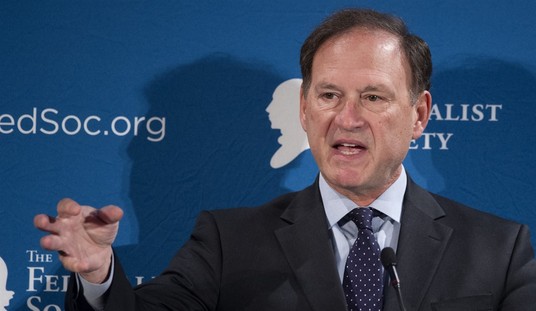
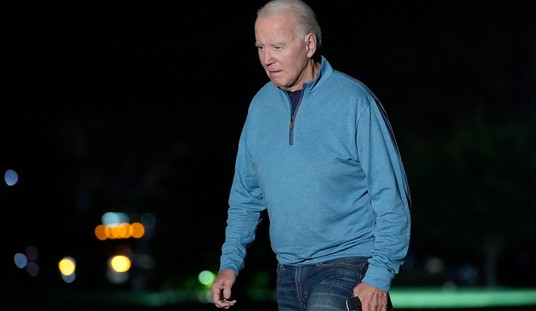

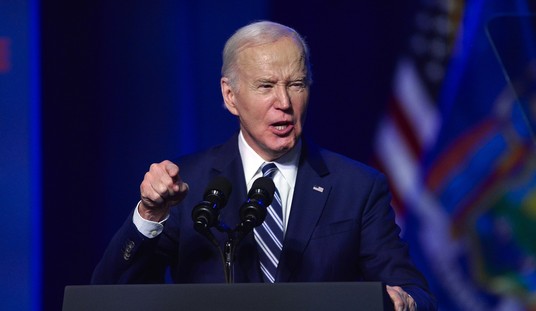

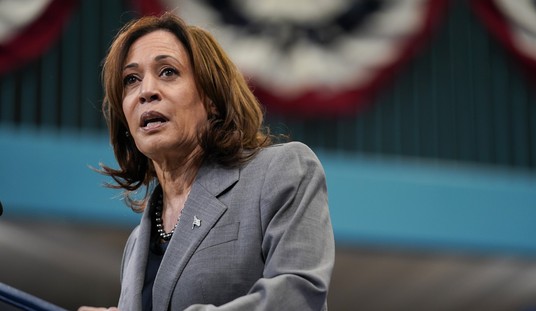
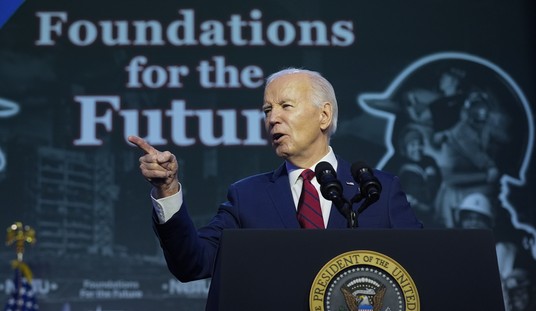

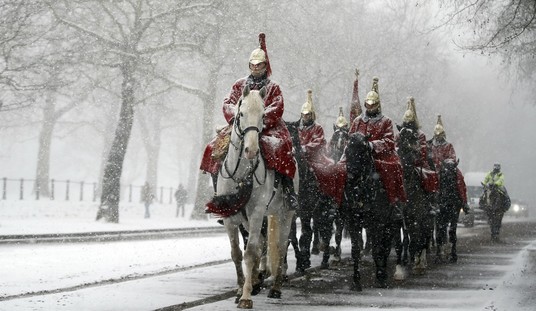


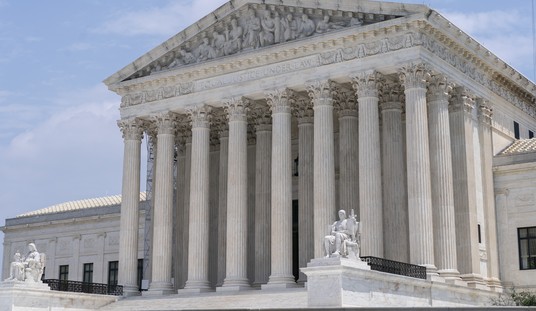
Join the conversation as a VIP Member